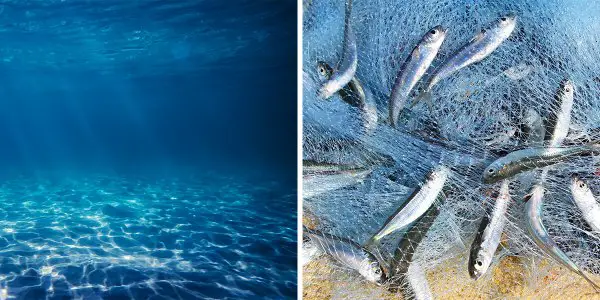Marine Fish Might Go Extinct By 2048 Due To Human Impact – Scientists Warn
Tags: opinion

By Mayukh Saha
Recently, adding to the ocean’s issues, Japan has pulled out of IWC, wanting to hunt whales commercially again. Besides that, a mass of plastics and other non-biodegradable wastes has accumulated in the oceans of the world and our ocean being dubbed as the ‘continent of plastic’. And on top of that, a recent study showed that at the current rate, all marine fish might get extinct by the year 2048. The culprits: overfishing, trawler fishing, climate change, and pollution.
Published in the Science journal, the study was led by Canadian scientist Boris Worm, PhD from the University of Halifax, Nova Scotia.
It was aimed at studying the aftermath of the loss of oceanic species.
The study was a four-step process:
Firstly, the team studied 32 experiments conducted on varying marine environments. Secondly, they analysed data from the 1000-year history of twelve coastal environments. Thirdly, they studied 64 major fisheries in the world and fourthly, they analysed the rate of recovery in 48 protected environments.
The conclusion was simple and straightforward: the so-called fish “apocalypse” was not something to be afraid of because it was already happening. The wheels have were already turning.
Diversity in the biome is always crucial for the success of any ecosystem, and it is an even bigger truth when it comes to extremely large and intricate ecosystems like the ocean. Oceanic diversity has been on a decline for a long time now, and the team’s study revealed that 29 percent of all edible fish species have declined by 90%.
According to a CBS News report, this truly signifies the end of all such fisheries.
And it would be grave folly to think that this will only mean a fishless platter. Fish, thanks to their numbers, keep algal and plankton blooms in check, thereby helping coastal environments sustain their biodiversity and water quality. Moreover, this enables beneficial plant plankton to thrive, thereby improving air quality manifold times.
Over 5000 people have downloaded our free ebook “Growth Hacking Tips And Rituals For Optimal Living” CLICK HERE to get your free copy now
Because of the shocking rapidity of this deterioration, Worm and the other scientists of the team have asked for radical and prompt action, because there isn’t much time left, and the damage might have already been done.
They suggested for fisheries management, habitat loss control, and waste detoxification before dumping to prevent pollution. They have also urged countries to increase their number of ocean reserves.
These will, with time, help people by aiding their health and preventing natural disasters like algal blooms.
Spread the word.
IMAGE CREDIT: Vadym Kurgak
IMAGE CREDIT2: Anusorn Phuengprasert Na Chol
Leave Comment: